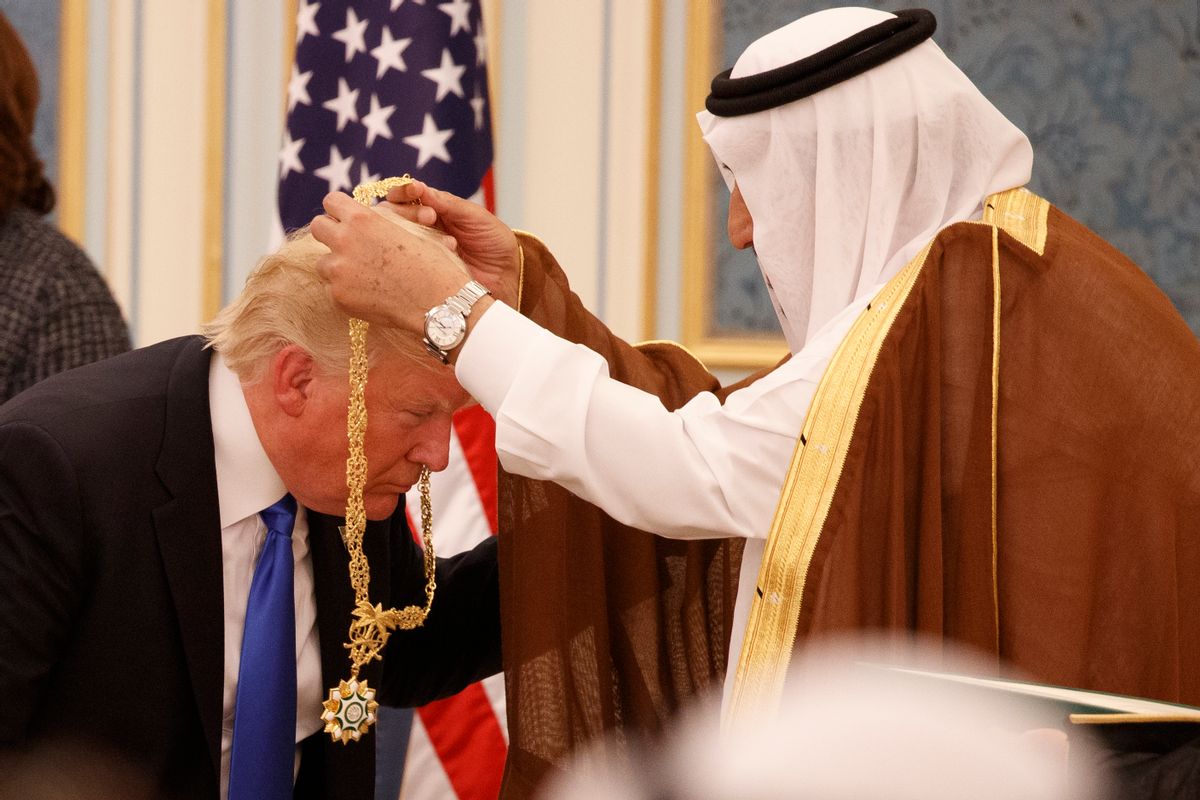As various conflicts across the globe perpetuate and tensions continue to rise, President Donald Trump is expected to unveil his new "Buy American" plan that will loosen regulations on the American weapons industry, bolster the global arms trade and increase reliance on U.S. military attaches and diplomats, according to a new report.
The announcement is expected to come as early as February and will consist of a "whole of government" effort that would "ease export rules on purchases by foreign countries of U.S.-made military equipment, from fighter jets and drones to warships and artillery," Reuters reported. The Trump administration has touted U.S. job creation and economic growth to defend the plan.
"This administration has demonstrated from the very beginning that human rights have taken a back seat to economic concerns," Rachel Stohl, director of the conventional defense program at the Stimson Center in Washington, told Reuters. "And the short-sightedness of a new arms export policy could have serious long-term implications."
Pressure from defense contractors over the threat of increased competition from foreign actors such as China and Russia have also played a part in the plan's creation. But promoting and escalating global arms trade can prove to have serious ramifications for the U.S., as it already has in the past. U.S. weaponry has landed in the hands of the likes of the Islamic State, as well as Al Qaeda affiliated groups under the guise of "rebel opposition" inside Syria.
The plan will also seek to reshape the International Tracking in Arms Regulations (ITAR):
Besides greater use of a network of military and commercial attaches already stationed at U.S. embassies in foreign capitals, senior officials who spoke on condition of anonymity said another thrust of the plan will be to set in motion a realignment of the International Trafficking in Arms Regulations (ITAR). It is a central policy governing arms exports since 1976 and has not been fully revamped in more than three decades.
Without providing specific details, a senior U.S. official asserted that looser weapon restrictions and increased sales to non-NATO allies and partners will provide "additional billions of dollars in deals and more jobs," Reuters reported.
While increasing the global arms trade is not necessarily unique to Trump, as it's been escalated by previous administrations as well, Trump's plan drastically loosens regulations and "make[s] it easier to sell U.S.-made military drones overseas and compete against fast-growing Chinese and Israeli rivals," Reuters reported.
The plan fits the mold of the first year of Trump's presidency, in which he has rapidly pushed forward a deregulatory agenda domestically and escalated nearly every U.S. conflict abroad since taking office.
In June, with assistance from the U.S. Senate, Trump's proposed $500 million arms sale passed, which has helped the nation carry out an aggressive campaign in Yemen and also counter Iranian influence in the region. Saudi Arabia has played a major role in the spread of global terror as it has funded Wahhabism, an extremist sect of Islam largely associated with Sunni Salafist militant groups such as Al Qaeda and ISIS. The Trump administration has also approved arms sales to Ukraine in recent weeks. The U.S. is already the world's global export leader, and that trend doesn't appear to be changing direction anytime soon under the Trump administration.



Shares